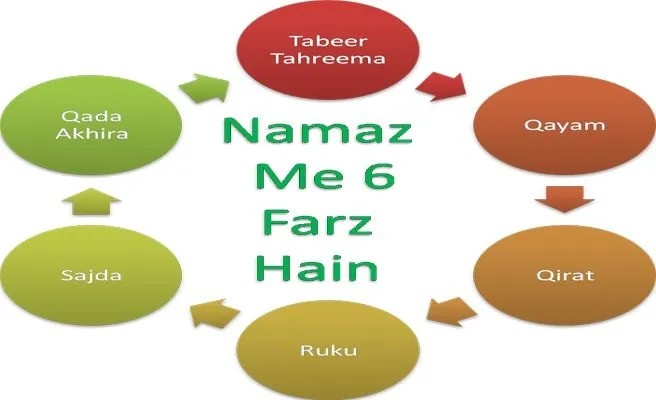Seeking forgiveness (Maghfirat) is a crucial aspect of Islamic teachings. It helps believers cleanse their hearts, seek Allah’s mercy, and gain peace of mind. Islam emphasizes the importance of making sincere repentance (Tawbah) and reciting supplications (Duas) for forgiveness. In this blog, we will explore the best Maghfirat Ki Dua, their significance, and how they can be incorporated into daily life.
Importance of Maghfirat in Islam
Islam teaches that all humans make mistakes, but Allah’s mercy is vast. The Quran and Hadith highlight that sincere repentance wipes away sins and brings a believer closer to Allah. Allah says in the Quran:
“And seek forgiveness of your Lord and turn to Him in repentance. Verily, my Lord is Most Merciful, Most Loving.” (Surah Hud 11:90)
The Prophet Muhammad (PBUH) also encouraged frequent repentance:
“By Allah, I seek forgiveness from Allah and turn to Him in repentance more than seventy times a day.” (Sahih Bukhari 6307)
Best Maghfirat Ki Dua for Seeking Forgiveness
There are many powerful Duas for Maghfirat mentioned in the Quran and Hadith. Below are some of the most effective ones:
1. Sayyidul Istighfar – The Master of Seeking Forgiveness
This Dua is considered one of the most powerful supplications for seeking forgiveness:
“Allahumma anta Rabbi la ilaha illa anta, Khalaqtani wa ana ‘abduka wa ana ‘ala ‘ahdika wa wa’dika mastata’tu, a’udhu bika min sharri ma sana’tu, abu’u laka bini’matika ‘alayya, wa abu’u laka bidhanbi faghfir li, fa innahu la yaghfiru ad-dhunuba illa anta.”
Translation: O Allah, You are my Lord, there is no god but You. You created me, and I am Your servant. I stand by Your covenant and promise as best as I can. I seek refuge in You from the evil of what I have done. I acknowledge Your favor upon me, and I confess my sins. So forgive me, for none forgives sins but You. (Sahih Bukhari 6306)
2. Short & Easy Maghfirat Ki Dua
If you are looking for a simple yet powerful supplication, recite:
Astaghfirullah wa Atubu Ilayh
Translation: I seek forgiveness from Allah and turn to Him in repentance.
This short Dua can be recited multiple times daily and carries immense blessings.
3. Dua of Prophet Yunus (AS) for Immediate Forgiveness
This Dua was recited by Prophet Yunus (AS) when he was trapped in the belly of a whale. It is one of the most effective supplications for repentance and relief from hardships:
La ilaha illa anta, subhanaka inni kuntu minaz-zalimin.
Translation: There is no god but You, glory be to You, indeed I have been among the wrongdoers. (Surah Al-Anbiya 21:87)
4. Quranic Dua for Maghfirat
Rabbana faghfirlana dhunubana wa kaffir ‘anna sayyiatina wa tawaffana ma’al abrar.
Translation: Our Lord! Forgive us our sins and remove from us our misdeeds and cause us to die with the righteous. (Surah Aal-e-Imran 3:193)
Advantages of Regularly Reciting Maghfirat Ki Dua
- Strengthens faith and connection with Allah.
- Removes past sins and leads to a purified heart.
- Brings inner peace and mental relief.
- Helps avoid punishment in the Hereafter.
- Increases the chances of having prayers accepted.
How to Incorporate Maghfirat Ki Dua in Daily Life?
- After Every Salah – Make it a habit to recite Istighfar after every prayer.
- During Tahajjud – The last third of the night is the best time to seek forgiveness.
- Before Sleeping – End your day by reciting Astaghfirullah multiple times.
- On Fridays – Increase recitation on Jumu’ah for added blessings.
- In Difficult Times – If facing hardships, seek Maghfirat to open doors of ease.
Where to Read More About Islamic Books & Duas?
If you want to explore more books and resources on Islamic supplications, Malikki.com offers a wide range of books, including:
- Best Islamic Books on supplications and forgiveness.
- Quran Tafsir books for in-depth understanding.
- Hadith Collections for authentic Duas from the Prophet (PBUH).
By regularly reciting Maghfirat Ki Dua, believers can attain Allah’s mercy and spiritual peace. Make it a daily habit to seek forgiveness and improve your connection with Allah.
For more Islamic books and resources, check out Malikki.com – your trusted platform for religious knowledge and supplications.
Frequently Asked Questions (FAQs)
1. What is the best Maghfirat Ki Dua for daily recitation?
The best daily supplication is “Astaghfirullah wa Atubu Ilayh” as it is easy to remember and effective.
2. How many times should I recite Maghfirat Ki Dua?
The Prophet (PBUH) recited Istighfar more than 70 times a day, so reciting it frequently is recommended.
3. Can I recite Maghfirat Ki Dua for someone else’s forgiveness?
Yes, you can pray for the forgiveness of your deceased relatives and loved ones.
4. Does seeking forgiveness remove major sins?
Yes, sincere repentance (Tawbah) removes both minor and major sins if done with a genuine heart.
5. Is there a specific time when Maghfirat Ki Dua is most effective?
The last third of the night (Tahajjud time) is the best time for seeking forgiveness.
6. Is there any Quranic evidence for seeking Maghfirat?
Yes, the Quran repeatedly emphasizes repentance and Allah’s mercy. Example: Surah Al-Zumar 39:53 – “Do not despair of Allah’s mercy. Indeed, Allah forgives all sins.”
7. Can I ask for Maghfirat in my own words?
Yes, you can speak to Allah in any language with sincerity.
8. What is the difference between Istighfar and Tawbah?
Istighfar means seeking forgiveness, while Tawbah includes repentance and a firm intention to not repeat sins.
9. Can Maghfirat Ki Dua change destiny?
Yes, sincere repentance can change one’s fate by attracting divine mercy.
10. Where can I find more Islamic supplications?
Visit Malikki.com for a collection of Islamic books on Duas and forgiveness.
